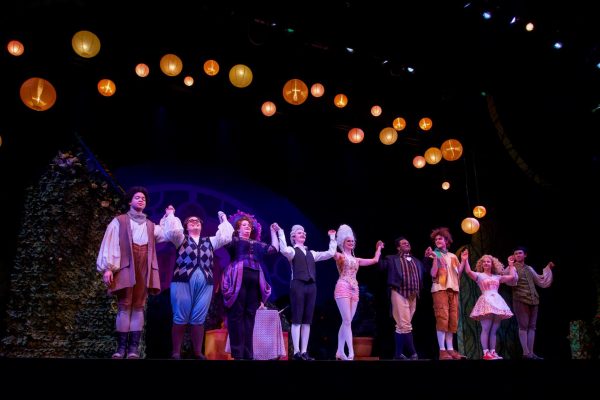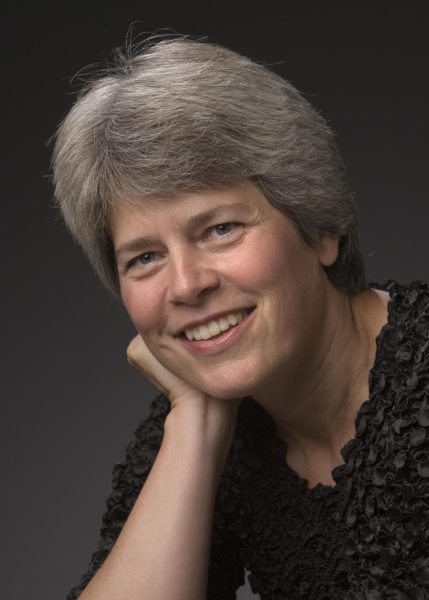Review: Rhiannon Giddens and Co. Perform at Finney
Italian Opera met American Jazz this past Tuesday with the return of Rhiannon Giddens, OC ’00, as part of Oberlin Conservatory’s Artist Recital Series. Giddens played alongside multi-instrumentalist Francesco Turrisi and bass player Jason Sypher. The trio performed pieces from their Grammy-award winning album, “They’re Calling me Home.” The concert cannot be easily categorized, for it contained genres including classical arias, folk songs, Black spirituals, and jazz, all of which were layered together in Giddens’ voice.
I was a bit startled by Giddens’ presentation at first. She was barefoot on a rug, which is something I had not seen in a musical performance before. She maintained a physical embodiment of the music throughout the performance, and there was a clear sense of physical involvement not often seen in other performances.
Despite the grand setting of Finney Chapel, the atmosphere of the concert was not so much formal as it was whimsical. There was no program, and although it had been announced that Giddens would perform pieces from her album, she moved far beyond that. She reached parts of my musical consciousness that were previously unknown to me — a taste shaped so rigidly by the strict Classicism of Beethoven and Baroque Fugues of Bach, that Giddens’ performance was almost destabilizing. While I was genuinely surprised by how many peopIe came out to see a matinee performance on a quiet Tuesday afternoon, I could not help but notice just how unaffected Giddens seemed by all of it.
The musical chemistry between Giddens and Turrisi was palpable throughout the performance. Turrisi, at times gently strumming his banjo or improvising jazz tunes on the piano, always maintained a deep connection with Giddens, who sang. Soft-spoken and gentle, Turrisi was educated at the Hague Conservatory in the Netherlands in American Jazz piano with a minor in Early Music, but explored blues and other genres post-graduation. You could sense that they could feel each other’s musical souls at an intrinsic level.
As much as she was a performer, Giddens was also a musicologist, sojourning through swaths of musical history buried and forgotten by mainstream audiences in each piece she performed. Giddens sought to shed light on pieces that had been lost in the riddle of history. Particularly, she was aware of the way jazz and blues songs written by Black artists in the early 20th century had been co-opted by white musicians to be used for racist minstrel shows.
What struck me most about Giddens’ work was how she related musical and historical performance. Embedded in each of her performances was a recognition that performing music must involve a deep understanding of the period it emerges from.




